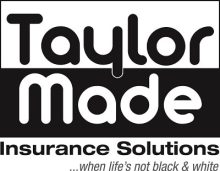Recently I read an article featured in the New Zealand Herald, which was written by “Geeks on Wheels” – a mobile IT company assisting individuals with all things IT. Typically, they receive 200 calls a month from New Zealanders who have been scammed, and their computers and software need to be made secure again. This number has doubled in recent months!! I thought 200 calls per month sounded like a lot.
We experienced this situation first hand a few weeks ago when friends phoned us early in the evening; both in a real state. Shona (a fictitious name) was home during the day having just been discharged from hospital and received a call from a person purporting to represent their Internet provider. The opening line was that they were aware that their internet connection had been slow recently. Not a bad opening line really – how many of us complain about the speed of our internet! The conversation progressed and ultimately the scammers transferred many thousands of dollars from their account to an offshore account.
How can this happen you ask! These are not silly people – Shona has a responsible job but was on strong medication, alone and vulnerable. Furthermore, the scammers are so slick! The number appears as a New Zealand number, they prey on your good nature, and they pretend to represent big New Zealand trusted brands. Online scam and fraud losses reported to Netsafe in 2017 in Auckland alone amounted to $2,749,362 (NZD). And these are only the cases that are reported – the actual number is likely far higher.
SOME TIPS TO AVOID SCAMS
- Think twice if you’re unexpectedly contacted about a deal or problem.
- Don’t respond to unexpected contact about problems with your computer.
- Legitimate organisations will never ask you for your passwords.
- Think carefully before entering your personal details online or giving them to
someone. - Be wary of unusual payment requests like gift cards, money transfer or iTunes
vouchers. - Be wary of partners recently met online who request money or hint at money
problems. - If you’re using a trusted trading or booking website, don’t pay outside of it.
- If you’re not sure if something is genuine you can contact Netsafe for free advice.
